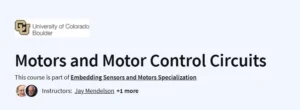What you will learn in Electric Industry Operations and Markets Course
Electricity Fundamentals: Understand what electricity is, including concepts like charge, current, voltage, resistance, electric power, and energy.
Electric System Components: Learn about power plants, transformers, transmission lines, and distribution systems that deliver electricity to consumers.
Electricity Generation and Distribution: Explore how electricity is generated, transmitted, and distributed to end-users.
Electricity Consumption Feedback: Understand how electricity consumption instantly feeds back on the transmission and generation of electricity.
Electricity Pricing: Learn about the various costs of the electric industry’s core activities and how electricity is priced.
Market Structures: Examine different types of electric markets and how they operate to dispatch electric supply to meet demand in real time.
Industry Regulations: Understand why and how the electric industry is regulated.
Program Overview
Introduction to Electric Industry Operations
⏳ 7 hours
Overview of electricity systems and the role they play in society.
Introduction to power generation, transmission, and distribution.
Electricity Market Structures
⏳ 7 hours
Explore how electric markets operate and how they balance supply and demand.
Understand the various market participants and their roles.
Electric Pricing and Cost Structures
⏳ 7 hours
Learn about the pricing mechanisms used in electric markets.
Explore the costs involved in producing and transmitting electricity.
Regulatory Policies and Compliance
⏳ 7 hours
Understand the regulatory environment of the electric industry.
Learn about compliance and government policies affecting electric utilities.
Capstone Project
Apply your knowledge to assess electricity generation and distribution systems, and evaluate pricing structures.
Get certificate
Job Outlook
Proficiency in electric industry operations is valuable for roles such as:
Energy Analyst
Utility Planner
Regulatory Affairs Specialist
Energy Consultant
Skills acquired in this course are applicable across various industries, including energy, utilities, and environmental consulting.
Completing this course can enhance your qualifications for positions that require a solid understanding of electric industry operations and market structures.
Specification: Electric Industry Operations and Markets
|
FAQs
- No advanced degree in economics or engineering is required.
- Basic familiarity with energy systems is helpful but not necessary.
- Lessons start with fundamentals before moving into complex topics.
- Suitable for students, policymakers, and industry professionals.
- Markets coordinate electricity production and consumption.
- They influence pricing, efficiency, and system reliability.
- Help manage demand fluctuations and renewable integration.
- Essential for policymakers, utility companies, and investors.
- Understand how electricity grids are operated and managed.
- Learn how wholesale and retail electricity markets function.
- Gain insights into regulatory frameworks and pricing models.
- Develop analytical skills to assess market efficiency and risks.
- Prepares learners for roles in utility companies and energy regulators.
- Valuable for consulting in energy economics and policy analysis.
- Useful for finance professionals analyzing energy markets and investments.
- Supports transitions into renewable and smart grid industries.
- Covers renewable energy’s impact on traditional electricity markets.
- Explains the role of deregulation and policy reforms.
- Discusses challenges like energy storage and grid reliability.
- Prepares learners to anticipate future market transformations.





